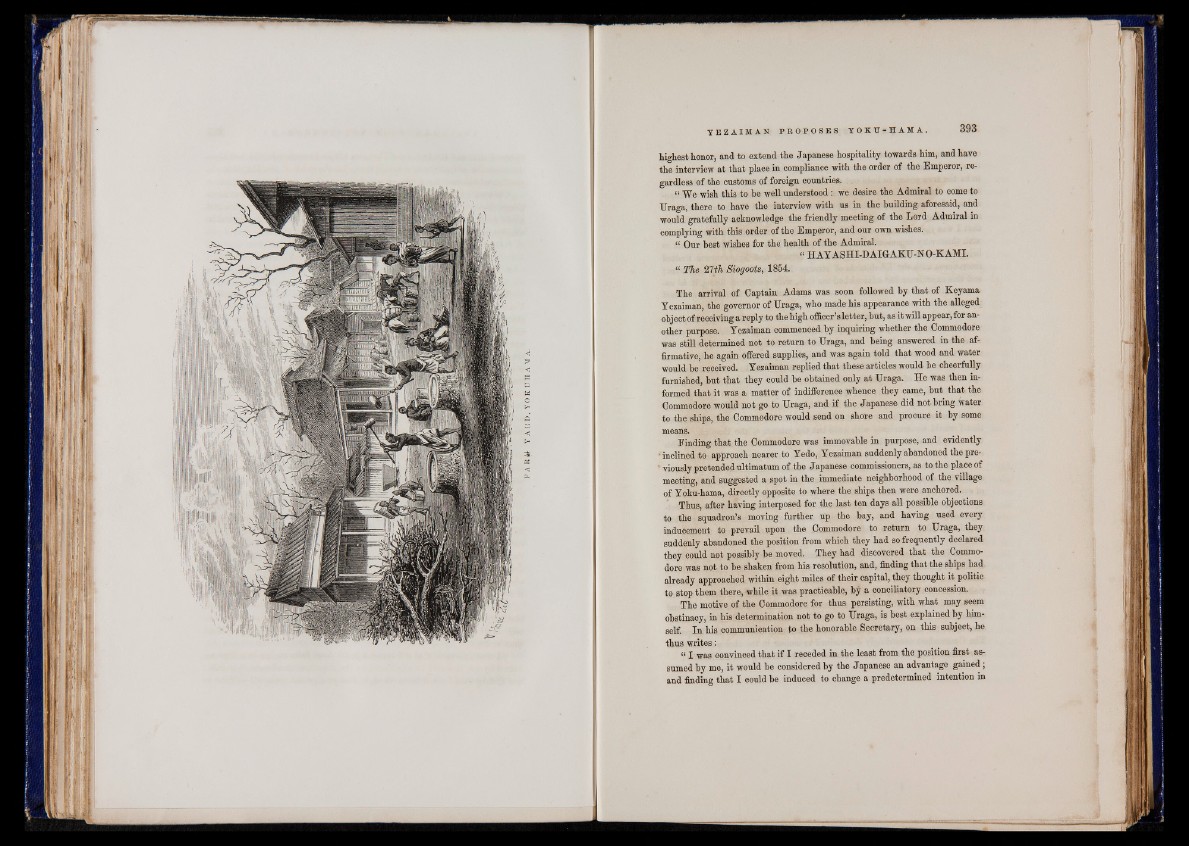
highest honor, and to extend the Japanese hospitality towards him, and have
the interview at that place in compliance with the order of the Emperor, regardless
of the customs of foreign countries.
“ We wish this to be well understood: we desire the Admiral to come to
Uraga, there to have the interview with us in the building aforesaid, and
would gratefully acknowledge the friendly meeting of the Lord Admiral in
complying with this order of the Emperor, and our own wishes.
“ Our best wishes for the health of the Admiral.
p HAY ASHI-D AIGAKU-N O-KAMI.
“ The 27th Siogoots, 1854.
The arrival of Captain Adams was soon followed by that of Keyama
Yezaiman, the governor of Uraga, who made his appearance with the alleged
object of receiving a reply to the high officer’s letter, but, as it will appear, for another
purpose. Yezaiman commenced by inquiring whether the Commodore
was still determined not to return to Uraga, and being answered in the affirmative,
he again offered supplies, and was again told that wood and water
would be received. Yezaiman replied that these articles would be cheerfully
furnished, but that they could be obtained only at Uraga. He was then informed
that it was a matter of indifference whence they came, but that the
Commodore would not go to Uraga, and if the Japanese did not bring water
to the ships, the Commodore would send on shore and procure it by some
means.
Finding that the Commodore was immovable in purpose, and evidently
■ inclined to approach nearer to Yedo, Yezaiman suddenly abandoned the pre-
' viously pretended ultimatum of the Japanese commissioners, as to the place of
meeting, and suggested a spot in the immediate neighborhood of the village
of Yoku-hama, directly opposite to where the ships then were anchored.
Thus, after having interposed for the last ten days all possible objections
to the squadron’s moving further up the bay, and having used every
inducement to prevail upon the Commodore to return to Uraga, they
suddenly abandoned the position from which they had so frequently declared
they could not possibly be moved. They had discovered that the Commodore
was not to be shaken from his resolution, and, finding that the ships had
already approached within eight miles of their capital, they thought it politic
to stop them there, while it was practicable, by a conciliatory concession.
The motive of the Commodore for thus persisting, with what may seem
obstinacy, in his determination not to go to Uraga, is best explained by himself.
In his communication to the honorable Secretary, on this subject, he
thus writes:
“ I was convinced that if I receded in the least from the position first assumed
by me, it would be considered by the Japanese an advantage gained;
and finding that I could be induced to change a predetermined intention in